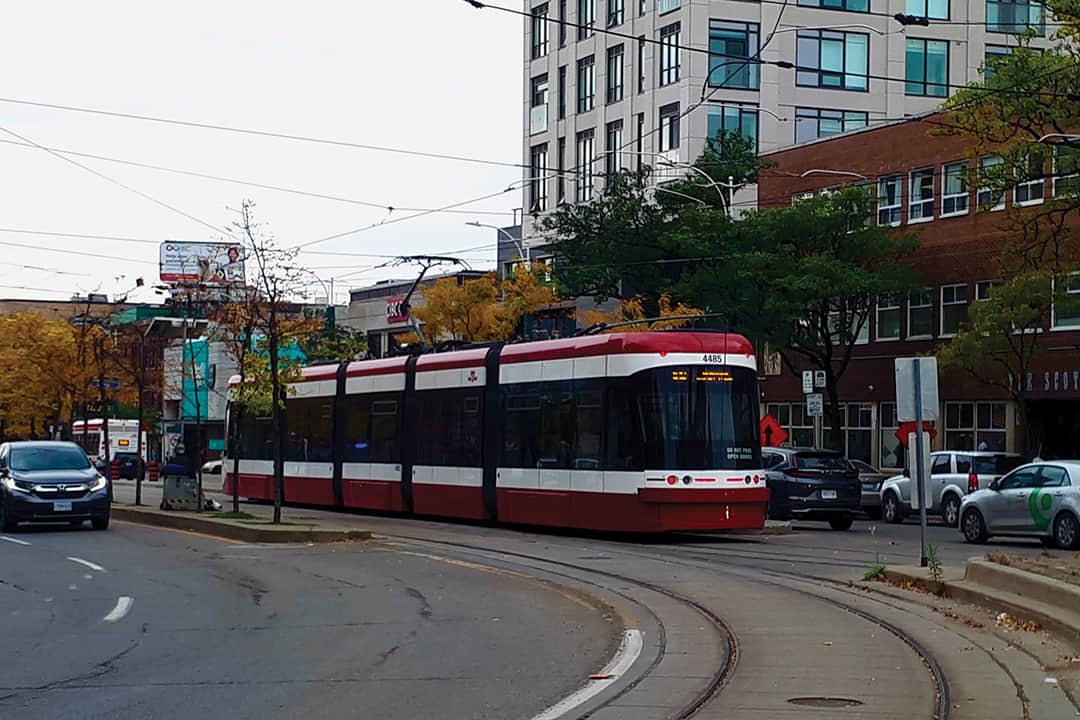As student commuters, we are all too familiar with the woes we encounter daily while taking transit. Whether we’re in the 416 or 905, on a streetcar or a GO train, it’s plainly visible to us that the systems on which we travel are at their breaking points.
On October 24, Ontario’s cities will vote for councillors, mayor, and school trustees. It’s important you cast your vote because it may help determine how some of the key transit issues that we are facing will be addressed in the next electoral term.
What are some major transit issues?
There are many issues with commuting by transit in the GTA. One in particular that most of us can relate to is the common phenomenon of bunching. Bunching occurs when two streetcars or buses travelling along the same route at the same time become packed together. While some people may take their frustrations out on the driver, the root problems causing this go much deeper. Transit vehicles carrying dozens of people can get stuck behind cars with just one or two passengers in them, and lose precious time while a few cars turn at traffic lights. As such, measures such as transit priority and bus lanes are imperative to solving these systematic issues. Although the City Council planned to implement measures to address these issues, in the five-year Service Plan and 10-year Outlook they released in 2019, the measures appear to be delayed.
Another issue that most GTA commuters experience often is unexpected delays. I’m sure my fellow commuters are familiar with having their train stop suddenly in a tunnel after a muffled announcement over the intercom about a route delay.
While it is unfair to blame service changes entirely on the Toronto Transit Commission (TTC), it is fair to ask why communication regarding delays is not coordinated better. After all, how can people rely on busy streetcars and subways if their service patterns are never clear? Poor communication only drives riders away from transit and towards driving. This further overcrowds roads, which affects bus and streetcar reliability. Ultimately, this creates a vicious cycle for all residents of the GTA.
How are transit issues affecting students?
With the rising cost of living in the GTA, cash-strapped students are finding it increasingly difficult to afford basics such as food, housing, and reliable transportation.
The current post-secondary monthly TTC pass is not affordable for students, costing $128.15 per month. Even more absurd, though, is the fact that students must pay a full TTC fare simply to travel a few kilometers from the nearest GO station to campus. Embarrassingly, the 905 — Eglinton East Express, which has far less transit patronage than downtown transit, has implemented free GO transfers.
However, the far larger TTC has yet to implement free transfers because it needs more funding to provide these accessibility-improving initiatives. For city commuters to finally reap the benefits that their brethren in the suburbs have enjoyed for so long, the TTC must be further subsidized to recover from its budget shortfall and attract more riders with lower fares.
The transit situation isn’t any better for UTSC students, who are often relegated to overcrowded buses which seem to have a mind of their own. Once Line 3 Scarborough is closed as planned, UTSC students will have to ride replacement buses between Kennedy and Scarborough Centre stations for at least seven years.
Back on campus, current plans for an Eglinton East LRT connecting Kennedy Station and UTSC are also unfunded. Additionally, with the TTC facing major budget shortfalls next year, the buses we currently rely on to get around Scarborough could see further service cutbacks if City Council doesn’t improve funding for TTC.
How can students get involved?
While the road to a better commute will be difficult, politicians must act quickly to improve our transit and ensure that it does not continue to deteriorate while our population increases rapidly. If you are a regular transit user or simply care about transit issues, please do your due research and vote for candidates that will champion cost-effective, proven measures to improve transit reliability and accessibility.
No matter the outcome of the election, there are still ways you can get involved in fixing these issues. You can visit TTCriders.ca/2022 to see how Toronto candidates responded to our transit issues survey. Furthermore, you can ask our elected leaders to support the change that is needed for our cities to become more livable by signing our petitions at TTCriders.ca/takeaction, or by signing up to volunteer from home or at one of our events across Toronto at TTCriders.ca/volunteer. We must all remember that this long and difficult road starts with the voices of many.
David Cho is a third-year student studying immunology and cell & molecular biology, and volunteers with TTCriders. Ryan Wong is a second-year student at UTSC studying city studies, and volunteers with TTCriders.


